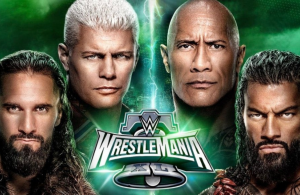 Jeremy Anderson
Jeremy Anderson
MC301 Contributor/Staff
As a special feature during the month of February, the Blue & White Flash will present a special four-part series focusing on African-Americans and related issues in honor of Black History Month. These perspectives may contain the opinion of the writer and do not represent the views of The Blue & White Flash.
Success can be a complicated topic because it is defined by the person trying to attain it. What it takes to be successful for you, may be not be deemed as success by others.
Some say success is defined as attaining the simple needs of food, water, and shelter. But many of us believe, as Americans living in a prosperous country with a money-driven market, that success is equated with the attainment of money. A lot of it!
By focusing on monetary success, the easiest way to associate success is with fame.
In today’s media, if a wealthy African-American male or female is being spotlighted, this person is usually in the sports or entertainment business. Media consumers are flooded with images of black men and women achieving success in areas.
Hardly a day will go by without watching TV and seeing the likes of LeBron James, Kevin Hart, Nicki Minaj, and countless other black entertainers and athletes.
Yet, outside of the spotlight of entertainment and sports, there are plenty of African-Americans doing just as well for themselves as the athletes and music stars the masses are accustomed to seeing so often.
As mentioned earlier in this series, black people are still underrepresented and discriminated against in the job market, but there have been many stories of individuals who dared to dream beyond statistical logic. Without all the glamour of celebrity status and constant media attention, there are many black people who have made a fortune without the spotlight.
On the business side, only five CEOs of the Fortune 500 companies are African-American.
Ursula Burns is an African-American woman and the CEO of Xerox. She has held the position since July of 2009. Of the five CEOs, she is the only woman.
The other black CEOs of Fortune 500 companies are: Kenneth Chenault of American Express, Rodney O’Neal of Delphi, Kenneth Frazier of Merck, and Arnold W. Donald of Carnival. These men and women are among the many other black entrepreneurs making moves in business.
Black people have also delved into the field of hotel ownership. In fact, some of the same hotels that weren’t accessible to black people due to Jim Crow laws are now owned by black people.
As of 1998, there were no major hotels that were black owned. After a group of black investors noticed this, they formed the National Association of Black Hotel Owners, Operators, and Developers. They rapidly dived into the realm of hotel management.
In 2001, a Memphis, Tenn., Days Inn hotel became one of the first modern day franchise hotels that was black owned. The very next year, Don Peebles purchased the Royal Palm Hotel in Miami.
Now just 14 years later, there are over 500 black-owned hotels according to blackmeetingsandtourism.com.
Black people are also thriving in the area literature.
Teri Woods is a best-selling author who was denied by many publishing companies. She then began to sell her books out of the trunk of her own car before beginning her own publishing company. With novels that are centered on urban lifestyles and struggles, she has gone on to sell over 2 million books, according to her website.
Other black best-selling authors include Eric Jerome Dickey, Malcolm Gladwell, Zadie Smith, Michael Baisden, and Nikki Turner. Also, in 2014, Stephen Henderson won a Pulitzer Prize for his journalism in the Detroit Free Press.
The above examples are only a very minute image of the type of success black and brown people are experiencing. Even without the glamour and fame that we are susceptible to be attracted to, these individuals have found ways outside of entertainment and sports to make a financially prosperous living.





Be First to Comment